
Research in clinical practice: Developing teaching alongside NHS practitioners
This case study exemplifies how the development of learning activities and materials can be supported by clinicians with leadership roles in the NHS to provide real-world experience of research in clinical practice.

Creating a sustainable wellbeing support journey for apprenticeship students
This project outlines how we created a sustainable wellbeing support journey for the unique challenges experienced by degree apprenticeship students, who are both employee and student.

Supporting academic and social transition of first year speech and language therapy students
Find out how Mirjana Sokolovic-Perovic and Joe Spackman in SPCLS implemented a buddy system to support academic and social transition of their students.

ChatGPT: A conversational language study tool
This project outlines the work undertaken in the Department of Classics to demystify generative artificial intelligence for ancient language staff and students over the 2023-2024 academic year.

Blending problem-based learning (PBL) and real-world scenarios on foundation economics: IFP
Adopting an innovative approach of blending problem-based learning (PBL) and real-world scenarios in foundation economics to bridge academic and real-world economic concepts, while fostering active learning and critical thinking.
Reflections of an additional research assistant on a UROP project
SPCLS student Hannah Raheja reflects on being a UROP research assistant, offering recommendations for research-focused student-staff partnerships.
Embedding entrepreneurship and technology literacy in the student curriculum: A case study of a module for real estate students
Explore how integrating entrepreneurship and technology literacy into a real estate module enhanced student engagement and skill development, fostering a practical understanding of modern industry challenges.
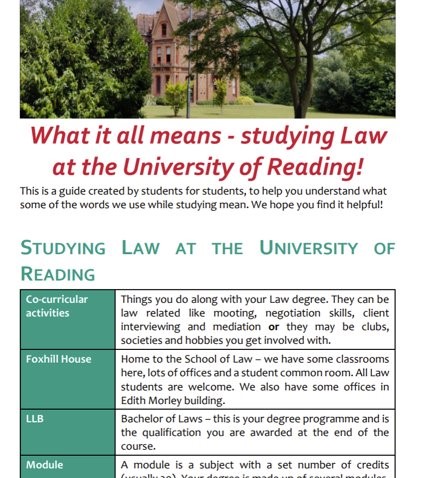
The Hidden Curriculum Glossary – supporting transitions with student-created resources
This student-staff partnership project developed a co-created glossary of useful language for incoming university students which has been adopted and adapted by colleagues across the University of Reading and widely across the sector.

Improving student awareness of programme information through strategically-timed messaging
In this case study, Dr Jayne Freeman reflects on her introduction of a staggered approach to delivering programme-level information to UG students in Psychology.

Exploring students’ sense of belonging in the Charlie Waller Institute
What is students’ perception of staff racial representation and its impact on students’ sense of belonging in Charlie Waller Institute? Select here to find out the answer.
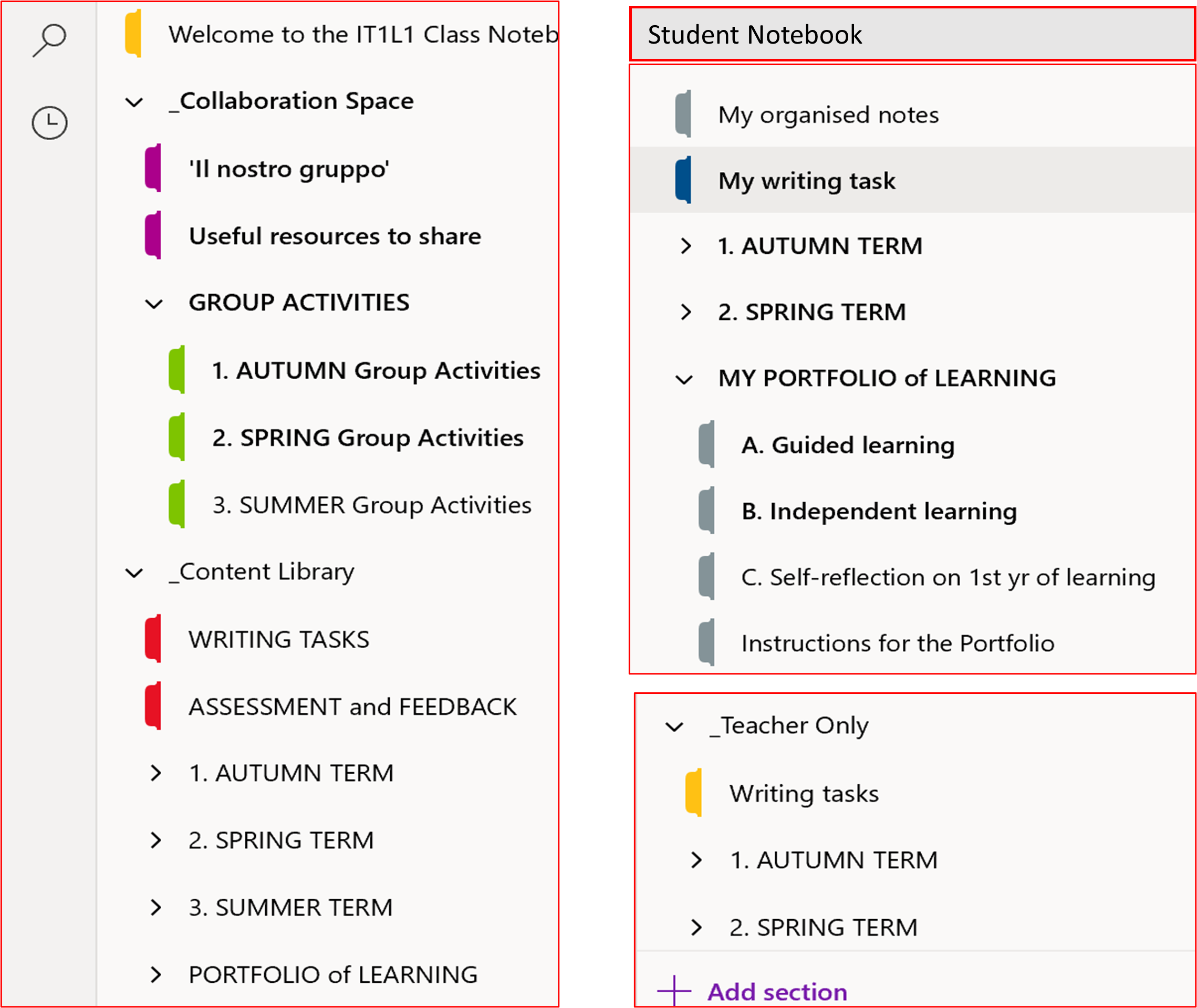
Enhancing and developing the use of OneNote Class Notebook beyond the Covid-19 pandemic
Rita Balestrini in the Department of Languages and Cultures reflects on the T&L possibilities of Microsoft OneNote in blended learning environments.

How should MSc Placements be assessed? Gathering the views of students to inform assessment
Reports the findings from interviews with students about how placements at Masters level should be assessed.
Reflecting on developing support for disabled students attending clinical training courses in the Charlie Waller Institute
This case study explores the development of a student forum for disabled students within the Charlie Waller Institute.

Developing resources to support student transition into HE
In this case study, we reflect on how PCLS designed induction booklets for UG programmes, and how they helped students with the transition into higher education.
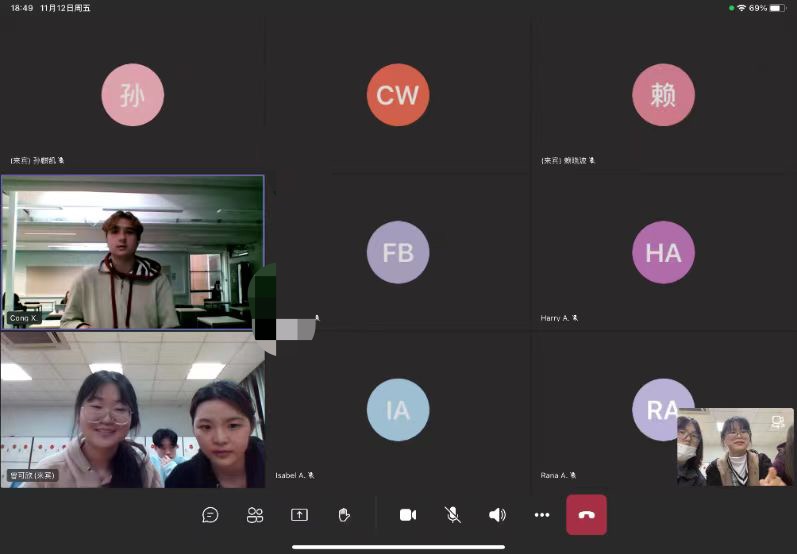
Enhancing students’ linguistic and intellectual competence through Virtual Exchanges in Chinese and Japanese
Find out how Cong Xia Li and her colleague Asako Partington created the virtual exchange projects for their students.
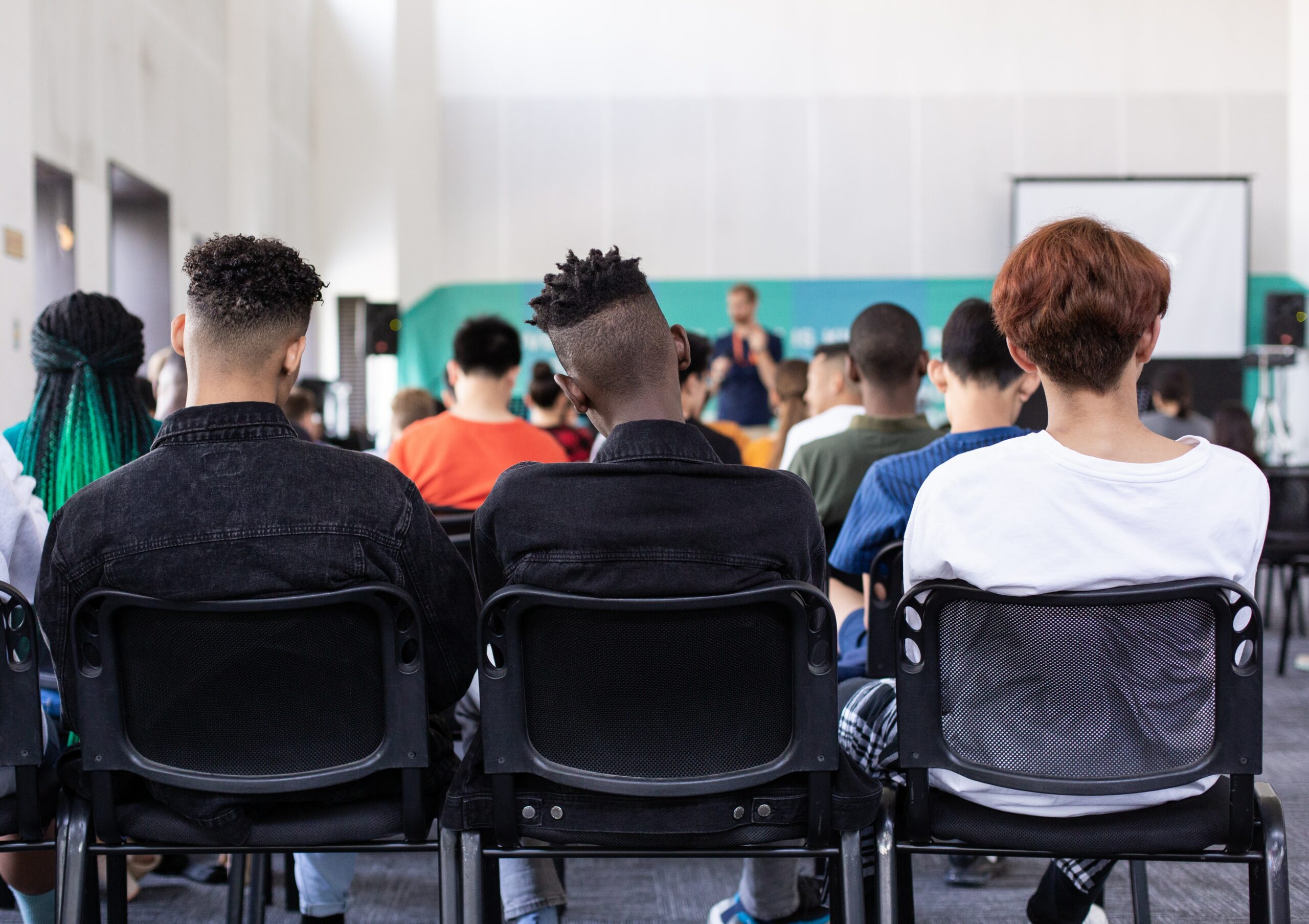
Using constructivism to achieve a decolonised accounting curriculum
Dr Ekililu Salifu discusses using constructivism learning theory to achieve the objectives of a decolonised curriculum in a pseudo-technical subject area like accounting.
Empowering tomorrow’s marketers: A journey through real-world skills and engaging learning in consumer behaviour group projects
Dr Bahram Mahmoodi Kahriz explores an authentic assessment involving peer feedback for undergraduate students in Henley Business School.
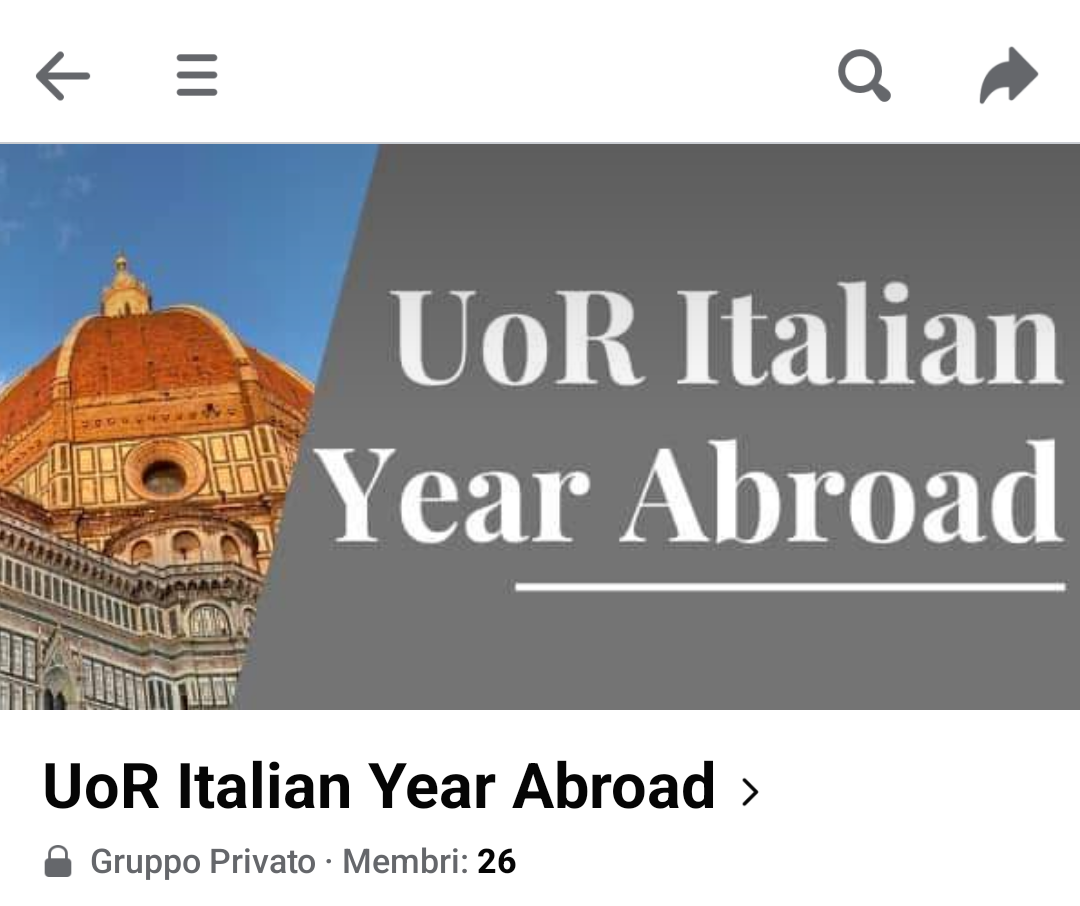
“Making it OUR Year Abroad”: A student-staff collaboration to support the Year Abroad experience for Languages students
Find out how students and staff in the Department of Languages and Cultures worked together to help peers prepare for the Year Abroad by creating channels to share their experience and advice.

Adapting a carousel technique from face to face to remote teaching on Blackboard Collaborate
This case study outlines how a carousel technique, whereby trainees complete a small group project then present the outcome to their peers, has been adapted for breakout rooms in Blackboard Collaborate.
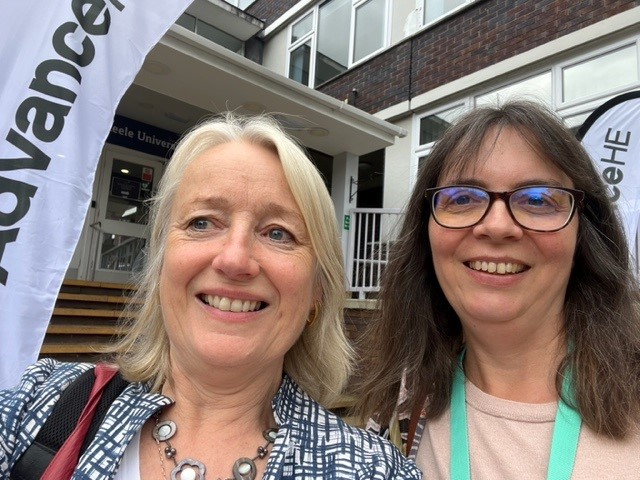
Whose getting the development here? Utlising SoTL frameworks to reflect on personal development modules for senior level apprentices
A scholarship of teaching and learning informed collaborative study into personal development teaching on apprenticeship programmes by Elizabeth Houldsworth (Henley Business School) and Emma Watton (Lancaster University Management School)
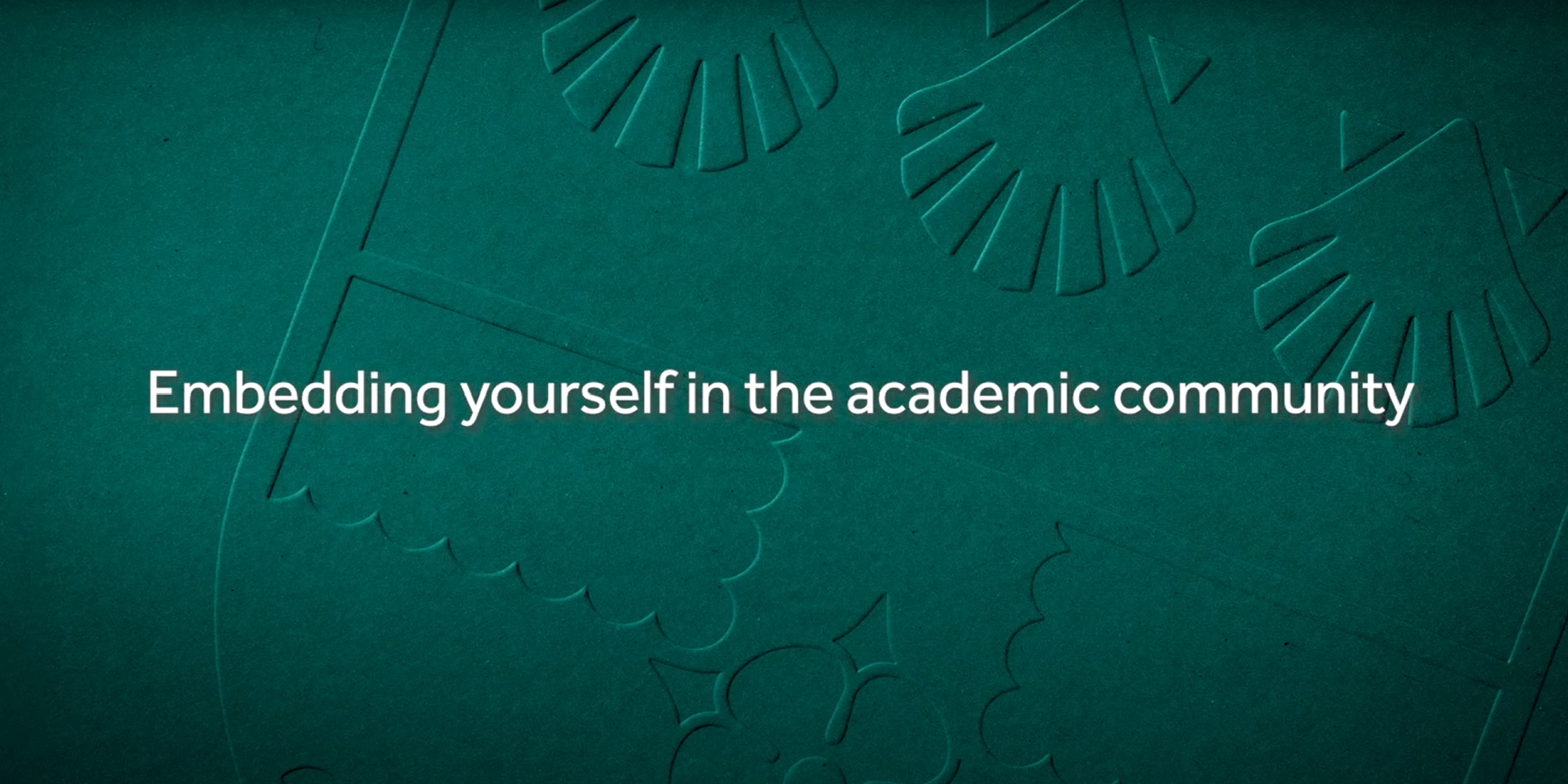
Working in partnership with students to signpost support structures to first years
Focusing on the use of student voice to support transition into university, this article discusses a successful Teaching and Learning Enhancement Project (TLEP) where videos were produced to help share key messages with new undergraduates.

Designing an authentic assessment tailored specifically for Part 4 students
This case study by Julia Abery in SMPCS outlines the process of designing a tailored masters-level authentic assessment with the aim of increasing student engagement and promoting transferable skills.
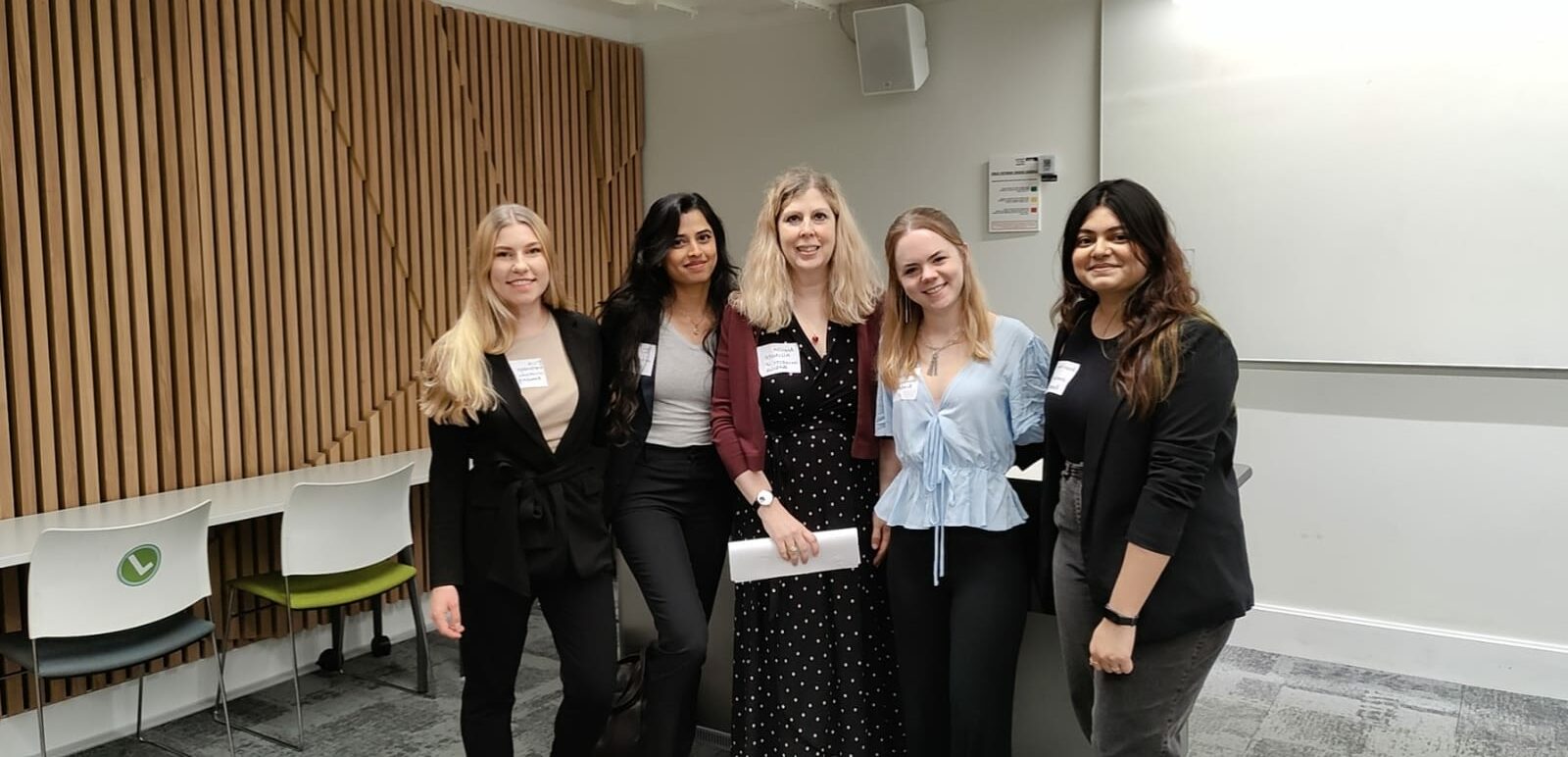
Reframing success in a partnership project
This case study by Amanda Millmore in the School of Law focuses upon the work of our student-staff partnership project working together on a new elective first year module. Focusing on the role of student partners acting as peer mentors we aimed to support the transition of new students into university and provided a bridge into the Law School community.

Decentring Ableism: Creative Applications of Film Accessibility in Film/TV Practical Teaching
This case study by Lecturer in Screen Practices and Industries Shweta Gosh outlines how film/TV accessibility tools such as captions can be used to teach filmmaking skills, facilitate creative thinking and create awareness about disability and accessibility.
The Use and Usefulness of Peer Feedback
Peer feedback is underutilised in many disciplines. In our study, we wanted to find out the conditions under which peer feedback works, how it is received by students, and ways to remove barriers to its successful implementation.
Using student feedback to make university-directed learning on placement more engaging
This case study from Anjali in the CWI outlines how the student voice was used to collaboratively adapt a specific teaching format for postgraduate students on placements.
DIGITAL EDUCATION & ACCESSIBLE LEARNING
This article reports on the joint Institute of Education / Department of Computer Science Leverhulme funded project concerned with improving online learning for three groups of students.
The university as a lending service – STEM learning with Lego
How the IoE trained primary teaching students in using Lego Spike Prime kits as tools for delivering STEM (Science, Technology, Engineering and Maths) learning. This was based on models of ‘training the trainer’ and ‘resource lending’ for maximum efficiency of resources.
Using more low-tech hybrid/hyflex teaching methods in English Literature modules – benefits and limitations.
Is hybrid learning, with a seminar leader teaching some students online whilst others learn in the classroom, something we should continue to offer in our teaching? A case study from a seminar leader in the Department of English Literature. *It is worth noting that hybrid teaching is not currently university policy and is not recommended for use.
Using more high-tech hybrid/hyflex teaching methods in language and academic skills learning contexts – benefits and limitations.
This post reports the findings of a 2021 ISLI pilot study on the use of hybrid/hyflex teaching and learning methods in teaching contexts which require multiple teacher-student and student-student interaction patterns. It should be noted that hybrid teaching is not currently university policy and is not recommended for use.
The One Where a Timetable Merger Gives Rise to a Curriculum Implementation Review
This case study outlines the Psychological Wellbeing Practitioner (PWP) team’s process of merging timetables for two sister programmes in response to department restructure, and the subsequent curriculum implementation review that inevitably followed.
Driving programme development in the IOE: student focus groups and paper writing
This article outlines the thinking to drive programme development through student focus groups across three IOE programmes.
Merging the Academic Tutor System into Compulsory Core Skills Modules
This case study outlines how SBS integrated academic tutoring into undergraduate core skills modules to give greater support for academic skills development and engagement between tutors and tutees.
A Partnership in SLL to Enhance Blended Learning Practices: an Analysis of the Process and Findings
PEBLSS (a Partnership to Enhance Blended Learning – between Staff and Students) was a project seeking to strengthen teaching and learning in SLL. It particularly focuses on enhancing methods of teaching and learning amidst the extraordinary conditions faced by staff and students which has resulted in the transition into blended and online learning.
Blended Learning – Exploring the Experience of Disabled Law Students
Learn more about this PLanT funded student-staff partnership project which amplified the voices of students with disabilities and long-term conditions in the School of Law and led to the adoption of recommendations about how to improve blended learning.
Learning to Interpret and Assess Complex and Incomplete Environmental Data
Professor Andrew Wade details a method of encouraging students to engage with diversified assessment in the form of field based practicals. The aim was to provide students with a safe and supportive environment in which to develop confidence in using a variety of context specific research methods, applied to what are often ‘messy’ and ‘complex’.
The impact of COVID upon practical classes in Part 1 chemistry – an opportunity to redevelop a core module
This article outlines the re-design, necessitated partly due to COVID-19, that was undertaken for the Part 1 chemistry module, CH1PRA, which services approximately 45 students per year.
Can Online Learning Facilitate Meaningful Interpersonal Connection?
Shelley Harris reflects on the experience of taking Employability events online for creative writing students
Improving student assessment literacy & engaging students with rubrics
Dr. Allan Laville School of Psychology & Clinical Languages Sciences In this 14 minute video, early rubrics adopter Dr. Allan Laville shares how he and colleagues in Psychology have sought to improve student assessment literacy, and have successfully engaged students with their assessment rubrics by embedding analysis of them into their in-class teaching and by […]
Misconceptions About Flipped Learning
Ed Tew shares his thoughts in the final of his three posts on flipped learning.
Running Virtual Focus Groups – Investigating the Student Experience of the Academic Tutor System
Find out how, whilst in lockdown, Amanda Millmore measured the impact of the new Academic Tutor System (ATS) on students in the School of Law, capturing their experiences, both good and bad, with a view to making improvements.
Supporting Transition: Investigating students’ experiences of transferring from University of Reading Malaysia campus (UoRM) to the University of Reading UK campus (UoR)
Find out how a TLDF mini project helped to improve Pharmacy student’s transition from our Malaysia campus to our Whiteknights campus.
The DEL Feedback Action Plan
The Case Study details how SLL produced new student-facing physical and online posters, designed by a ‘Real Jobs’ student, to instruct students on finding their feedback online, and generated ‘marking checklists’ for staff to indicate what needs to be included in feedback and what needs to be avoided.
Student co-creation of course material in Contract Law
The PLaNT project involved the co-creation, with students, of a series and podcasts and other materials for Contract Law (LW1CON).
How ISLI moved to full online teaching in four weeks
Find out more how ISLI moved to full online teaching in four weeks.
Taking Academic Language and Literacy Courses Online
This case study outlines the process of rapidly converting the Academic English Programme (AEP) to online, and reports student feedback and reflections on the experience.
Considering wellbeing within the placement module assessment
Allán Laville (Dean for D&I and Lecturer in Clinical Psychology) and Libby Adams (Research Assistant), SPCLS Overview This project aimed to design a new alternative assessment to form a part of the MSci Applied Psychology course which puts emphasis on the practical sides of training as a Psychological Wellbeing Practitioner (PWP). This included utilising problem-solving […]
Developing psychoeducational materials for individuals with learning disabilities
Dr Allán Laville, a.laville@reading.ac.uk, (Dean for D&I and Lecturer in Clinical Psychology) and Charlotte Field (Research Assistant and student on MSci Applied Psychology) Overview To improve access to psychoeducational materials by addressing the diverse needs of those accessing Improving Access to Psychological Therapy (IAPT) services. We worked on creating materials that could be used to describe […]
Using Psychological Techniques to get the most out of your Feedback
Zainab Abdulsattar (student – Research Assistant), Tamara Wiehe (staff – PWP Clinical Educator) and Dr Allán Laville, a.laville@reading.ac.uk, (Dean for D&I and Lecturer in Clinical Psychology). School of Psychology and CLS. Overview To help Part 3 MSci Applied Psychology students address the emotional aspect of engaging with and interpreting assessment feedback, we have created a Blackboard […]
Developing and embedding electronic assessment overviews
Dr Allán Laville, a.laville@reading.ac.uk , Chloe Chessell and Tamara Wiehe Overview To develop our assessment practices, we created electronic assessment overviews for all assessments in Part 3 MSci Applied Psychology (Clinical) programme. Here we reflect on the benefits of completing this project via a student-staff partnership as well as the realised benefits for students. Objectives To […]
Want your students to succeed? Then help them to interpret their grades
Dr Sonia Hood, Study Advice Manager, writes how helping students’ to understand their grades is key to their success.
Seeds of Diversity: 90 years and growing
Melanie Jay and Suzy Tutchell, Institute of Education The Project Seeds of Diversity was an ambitious, enriching and highly creative project drawing together the University of Reading’s community of teachers and learners to produce a collaborative and evolving sculptural installation. This innovative project celebrated the University’s roots and growth over the past 90 years as well […]
Using personal capture to supplement lectures and address FAQs
Will Hughes – School of Built Environment (Construction Management & Engineering) Overview The personal capture pilot project helped me to develop and test ideas to advance what I had been previously trying using YouTube. One important lesson for me was that shorter duration videos better engage students. I also learned how to record videos featuring […]
‘A-level Study Boost: Unseen Poetry and the Creative Process’: an online course
Rebecca Bullard, School of Literature and Languages, r.bullard@reading.ac.uk Overview ‘A-level Study Boost: Unseen Poetry and the Creative Process’ is a two-week online course created by staff and students in the Department of English Literature and the Online Courses team, and hosted on the social learning platform, FutureLearn. It engages a global audience of learners in reading, writing, […]
Use of personal capture to enhance the module selection process in Mathematics and Statistics
Calvin James Smith – Department of Maths & Statistics Overview We created short videos advertising the content of modules to enable students to make more informed choices during the module selection process. Staff reported mixed experiences and interest in Mediasite personal capture so other mechanisms were also used (e.g. Camtasia, use of camcorder). Student feedback […]
Inter-Professional Practical Workshop: Registered Intermediaries & Advocates in a Mock Criminal Court
Amanda Millmore, Law, a.millmore@reading.ac.uk Alison Cox, PCLS, a.cox@reading.ac.uk Overview This was a collaboration between 2 schools (Law & PCLS) to introduce students to the work of Registered Intermediaries in Court in a practical way by offering co-curricular training. Registered Intermediaries are communication specialists who work in criminal cases to assist vulnerable people with significant communication difficulties to communicate […]
Piloting General Practice (GP) experiential learning for MPharm Year 3 students
Catherine Langran, Lecturer in Pharmacy Practice, School of Pharmacy Daniel Mercer & Selen Morelle, MPharm Part 4 students, School of Pharmacy Background Throughout the Masters of Pharmacy degree (MPharm) students undertake experiential learning in hospital and community pharmacies. Experiential learning through placements is an important approach to teaching and learning; providing a safe learning environment […]
Clinical skills development: using controlled condition assessment to develop behavioural competence aligned to Miller’s pyramid
Kat Hall, School of Chemistry, Food and Pharmacy, k.a.hall@reading.ac.uk Overview The Centre for Inter-Professional Postgraduate Education and Training (CIPPET) provide PGT training for healthcare professionals through a flexible Masters programme built around blended learning modules alongside workplace-based learning and assessment. This project aimed to evolve the department’s approach to delivering one of our clinical skills workshops […]
Developing Diversity and Inclusion teaching: The importance of D&I and Ethical Practice
Dr Allán Laville, Psychology and Clinical Language Sciences, a.laville@reading.ac.uk Overview In the training of Psychological Wellbeing Practitioners (PWPs), teaching must include a focus on Diversity and Inclusion (D&I) as well how this relates to ethical practice. Therefore, I created a 15-minute screencast that tied key D&I principles to clinical practice, with a particular focus on ethical […]
Universally Speaking: crossing cultural & generational boundaries – a seminar series
Dan Jones, School of Psychology & Clinical Language Sciences, d.jones6@reading.ac.uk Overview The ‘Universally Speaking’ series provides a platform for students, staff and community members to exchange ideas on culture, heritage, customs, values and traditions, via a seminar presentation. Each seminar is followed by an informal drinks reception to facilitate further discussion and interactions between the different […]
‘How did I do?’ Finding new ways to describe the standards of foreign language performance. A follow-up project on the redesign of two marking schemes (DLC)
Rita Balestrini and Elisabeth Koenigshofer, School of Literature and Languages, r.balestrini@reading; e.koenigshofer@reading.ac.uk Overview Working in collaboration with two Final Year students, we designed two ‘flexible’, ‘minimalist’ rubric templates usable and adaptable across different languages and levels, to provide a basis for the creation of level specific, and potentially task specific, marking schemes where sub-dimensions can be […]
Working in partnership with our lecturers to redesign language marking schemes
Sian Wells (BA French and Italian) and Sophia Acton (BA Italian and Spanish) During the Spring and Summer term of 2019, we participated in a project within the Department of Modern Languages and European Studies (MLES, now Department of Languages and Cultures) with the aim of redesigning the marking schemes used for oral and written […]
Stories of Our Studies
Simon Floodgate, Institute of Education, s.floodgate@reading.ac.uk Overview A form of inter-active, reflective practice for students in which Playback Theatre (an improvisatory form) is used to ‘play back’ individual stories of students’ experiences regarding all aspects of their studies. This process can support emotional literacy and well-being and promote professionalism in students at all levels of study. […]
Reframing Identity 360
Kate Allen, Department of Art, k.allen@reading.ac.uk Overview An investigative artwork that explores identity using 360 cameras developed through practical, alumni led workshops and socially engaged art with current art students, school groups and the general public. Part of ArtLab Movement’ at Tate Exchange (TEx) 2019 at the Tate Modern on March and be archived on […]
A ‘Sherlock’ Approach to Physician Associate Learning: Using Workshops to Promote Critical Thought
Dr Sarah Greenwood, Lecturer, Physician Associate Programme, School of Chemistry, Food and Pharmacy, s.l.greenwood@reading.ac.uk Physician Associate (PA) students are talented life-sciences postgraduates who must quickly develop critical thinking skills in relation to medicine. Our PA programme focuses on the core skill of applying bioscientific and medical theory to skills of history taking, clinical examination, investigation diagnosis and […]
Engaging Diverse Learning Communities in Partnership: A Case Study Involving Professional Practice Students in Re-designing an Assessment
Lucy Hart (student – trainee PWP)- l.hart@student.reading.ac.uk Tamara Wiehe (staff – PWP Clinical Educator)- t.wiehe@reading.ac.uk Charlie Waller Institute, School of Psychology and Clinical Language Sciences Overview This case study re-designed an assessment for two Higher Education programmes where students train to become Psychological Wellbeing Practitioners (PWP) in the NHS. The use of […]
Using personal capture to support students to learn practical theory outside of the laboratory
Dr Geraldine (Jay) Mulley – School of Biological Sciences Overview I produced four screen casts to encourage students to better prepare for practical classes and to reinforce practical theory taught in class. Approximately 45% of the cohort watched at least some of the video content, mainly in the few days leading up to the practical […]
Building bridges and smoothing edges
Patrick Finnegan – School of Economics, Politics & International Relations Overview My use of the personal capture scheme was intended to enhance our teaching methods within the department. My initial aims of building additional video capture material into the ongoing lecture series did not come through but I was able to use the capture package […]
It’s snow problem! Using personal capture for recording a lecture cancelled on a ‘snow day’
Adrian Aronsson-Storrier – School of Law Watch Adrian’s 5 minute video case study about how he used personal capture (the Mediasite tool) to record a lecture cancelled due to bad weather during the personal capture pilot project, 2018-19.
Creating screencast videos to support and engage post-graduate students
Sue Blackett – Henley Business School, 2018-19 Overview I participated in the university’s Personal Capture pilot as a Champion for my school to trial the Mediasite tool to create screen cast videos for use in teaching and learning. My aim was to help PGT students get to grips with key elements of the module. The videos facilitated students in repeatedly viewing content […]
Connecting with the Curriculum Framework: Using focus groups to diversify assessment (Part 2)
Dr Madeleine Davies and Michael Lyons, School of Literature and Languages Overview The Department of English Literature (DEL) has run two student focus groups and two whole-cohort surveys as part of our Teaching and Learning Development Fund‘Diversifying Assessments’ project. This is the second of two T&L Exchange entries on this topic. Click here for the first entry which outlines how the feedback […]
Rethinking assessment design, to improve the student/staff experience when dealing with video submissions
Rachel Warner, School of Arts and Communication Design Rachel.Warner@pgr.reading.ac.uk Jacqueline Fairbairn, Centre for Quality Support and Development j.fairbairn@reading.ac.uk Overview Rachel in Typography and Graphic Communication (T&GC) worked with the Technology Enhanced Learning (TEL) team to rethink an assignment workflow, to improve the student/staff experience when dealing with video submissions. Changes were made to address student […]
Celebrating Student Success Through Staff-Student Publication Projects
Dr Madeleine Davies, Department of English Literature m.k.davies@reading.ac.uk Overview In 2017 I replaced the exam on a Part 3 module I convene (‘Margaret Atwood’) with an online learning journal assessment and I was so impressed with the students’ work that I sought funding to publish selected extracts in a UoR book, Second Sight: The Margaret Atwood […]
Engaging students in assessment design
Dr Maria Kambouri-Danos, Institute of Education m.kambouridanos@reading.ac.uk Year of activity 2016/17 Overview This entry aims to share the experience of re-designing and evaluating assessment in collaboration with students. It explains the need for developing the new assessment design and then discusses the process of implementing and evaluating its appropriateness. It finally reflects on the impact […]
Independent research and research dissemination in undergraduate teaching
Dr. Ute Woelfel, Literature and Languages u.wolfel@reading.ac.uk Year of activity: 2016/17 Overview In order to improve students’ engagement, support their abilities as independent learners, and increase their feeling of ownership for their academic work, elements of independent research and research dissemination through the creation of research posters were included in a Part 2 module. Objectives […]
Using online learning journals
Dr Nicola Abram, School of Literature and Languages n.l.abram@reading.ac.uk Overview This entry describes the use of online Learning Journals on a Part Three English Literature module. This method of assessment supports students to carry out independent research and to reflect on their personal learning journey, and rewards students’ sustained engagement and progress. Objectives To encourage […]
Using screencasts to deliver skills training: a Part One English Literature module
Dr. Nicola Abram, Literature and Languages n.l.abram@reading.ac.uk Year of activity: 2015-6 Overview This entry describes the use of screencasts to deliver skills training on a compulsory Part One English Literature module. As a result of the changes outlined here, every student taking English Literature at the University of Reading will have access throughout their degree […]
Closing the ‘feedback loop’ using Unitu: Student uptake, usage and impact of a new online student feedback platform
Dr Emma Mayhew, Politics, Economics and International Relations e.a.mayhew@reading.ac.uk Year of activity: 2015/16 Overview PLanT funding was used to research the impact of a new student feedback platform in Politics. Unitu creates an online student forum from which representatives pull issues onto a separate departmental board. Academics can then add responses and show if an […]
Game-based learning using social media
Dr Stanimira Milcheva, Henley Business School stani.milcheva@henley.reading.ac.uk Year of activity: 2015/16 Overview We designed a simple game (called the REFinGame) which was aligned with the course material and launched it on Facebook. This approach, which could easily be applied to other discipline areas, was successfully used to enhance student learning and engagement with modules related […]
Blackboard Collaborate cross-campus tutorials as a useful tool to enhance the Part One Pharmacy student experience at the University of Reading Malaysia
Dr Darius Widera, School of Chemistry, Food and Pharmacy d.widera@reading.ac.uk Overview After a successful application to act as one of the early adopters of Blackboard Collaborate at the University of Reading, this technology platform was used for a series of cross-campus tutorials within the Fundamentals of Physiology (PM1AM) module between the University of Reading’s Whiteknights […]
Reading University Observatory: A web-based resource for 21st century teaching and learning
Dr Andrew Gabey, School of Mathematical, Physical and Computation Sciences a.m.gabey@reading.ac.uk Year of activity: 2016/17 Overview The University’s Atmospheric Observatory continuously collects high-quality environmental data, which is used heavily in teaching courses – particularly in Meteorology. A new web-based system, due to go into service for the Autumn semester, has been developed under this project […]
Virtual teaching collections in Archaeology and Classics: turning artefacts into 3D models
Dr Robert Hosfield, School of Archaeology, Geography and Environmental Science r.hosfield@reading.ac.uk Year of activity: 2015/16 Lykethos Overview The project tested different methods for producing and disseminating 3D models of existing artefacts in the teaching collections of Classics and Archaeology. 3D scanning was labour intensive and struggled to accurately represent some of the raw materials. By […]
Flipping Earth Science practicals and the use of digital specimens
Dr Hazel McGoff, School of Archaeology, Geography and Environmental Science h.j.mcgoff@reading.ac.uk Year of activity: 2016/17 Overview This project established a library of digital images of our key mineral and rock specimens. Annotated explanatory labels were added to the images to create a resource that can be used to help students familiarise themselves with the specimens […]
Using wikis for assessed group work in new history modules
Shirin Irvine – TEL Adviser, CQSD Overview For the academic year 2015/16, the Department of History offered a brand-new Part 1 programme as part of the History Project. This resulted in the development of three new core modules. Dr Mara Oliva transformed common practice by using technology to carry out full electronic assessment for her module. […]
Embedding Employability Through Collaborative Curriculum Design
Find out more about how a collaborative partnership was used in Law to design the assessments within a trailblazing new module.
Student-Led Audio Lecture Recording Pilot
Find out more about how student-led audio lecture recording in Law helped aid revision and reduce anxiety around exam season.
ArtLab
Find out more about the Art Department’s innovative art and technology facility designed to support Outreach and Widening Participation activities. This ambitious project sees students work as co-researchers with local schools integrating arts with research and uses new technologies to unlock possibilities, raise aspirations, and promote the development of new skills.
Developing innovative teaching: The importance of reflective practice
Dr Allán Laville, School of Psychology and Clinical Language Sciences a.laville@reading.ac.uk Overview In the training of Psychological Wellbeing Practitioners (PWPs), it is crucial to support students in the development of their reflective thinking and writing skills. Therefore, I implemented the Self-Practice/Self-Reflection (SP/SR; Bennett-Levy, 2001) approach into our PWP training programmes. Impact was measured by asking students […]
Drawing on our Study Smart success at AMOSSHE
Dr Michelle Reid, Study Advice michelle.reid@reading.ac.uk Dr Paddy Woodman, Director of Student Services p.e.woodman@reading.ac.uk Paddy and Michelle ran a workshop showcasing our online transitions course, Study Smart, at the AMOSSHE Student Services conference recently. The workshop, attended by over 50 delegates, highlighted the ways we’d used Study Smart to increase student confidence and create a […]
Discovering and developing our diverse Library collections
Kerry Webb, Associate Director (Academic Liaison and Support), The Library k.j.webb@reading.ac.uk New Library LGBT+ research guide We’re all working hard to make our […]
Sharing the ‘secrets’: Involving students in the use (and design?) of marking schemes
Rita Balestrini, School of Literature and Languages, r.balestrini@reading.ac.uk Overview Between 2016 and 2018, I led a project aiming to enhance the process of assessing foreign language skills in the Department of Modern Languages and European Studies (MLES). The project was supported by the Teaching and Learning Development Fund. Its scope involved two levels of intervention: […]
Attention Workshop
Florian Roithmayr, School of Art and Communication Design […]
Curriculum Framework review in Classics
Barbara Goff, Department of Classics, School of Humanities […]
Blending face-to-face and online to deliver group seminars
Jeremy Lelean, Staff Engagement […]
Can students and academics benefit from peer assisted learning (PAL) sessions?
Caroline Crolla, Student Success and Engagement Team, Student Services c.s.crolla@reading.ac.uk Overview Peer Assisted Learning (PAL) is a globally recognised […]
Supporting diversity through targeted language skills development
Alison Fenner, International Study and Language Institute […]
Curriculum Framework Review in Classics
Barbara Goff, Director of Teaching and Learning, Classics b.e.goff@reading.ac.uk In the Classics department we reckon we review our curriculum all the time. We are constantly designing new modules that take cognisance of the latest research and share it with our students. We teach with epigraphy and 3D modelling, we […]
Improving the student experience through the IWLP Tandem Language Learning scheme
Ali Nicholson, International Study and Language Institute ali.nicholson@reading.ac.uk Overview Between 2016 and 2018 we have run a Tandem language scheme, whereby students studying a language with the Institution-wide Language Programme (IWLP) are paired up with a native speaker student, usually (though not always) a Visiting student. Once introduced, the students spend one hour […]
University support to avoid plagiarism – Student’s perspectives
Angelique Chettiparamb and Lucy Newton, Henley Business School a.chettiparamb@reading.ac.uk; l.a.newton@henley.ac.uk Overview Four enterprising and enthusiastic students from different programmes in Henley Business School enquired into the effectiveness of School/University measures to enhance and promote academic integrity. The students were Eilish McDonald, Hetvi Shah, Prinal Shah and Tillie Hunter The project leads were Dr Angelique Chettiparamb […]
Can students and academics benefit from peer assisted learning (PAL) sessions?
Caroline Crolla, Student Success and Engagement Team, Student Services c.s.crolla@reading.ac.uk Overview Peer Assisted Learning (PAL) is a globally recognised scheme where more experienced students who have already successfully completed a module work with students who are studying the module for the first time. One hour, weekly PAL sessions are run by trained and experienced student […]
Promoting Research in Teacher Education
Nasreen Majid, Institute of Education n.majid@reading.ac.uk Overview All students on […]
Study Even Smarter
Michelle Reid, Kim Shahabudin, and Sonia Hood, Study Advice The successful Study Smart online course will be running again for new Part 1 undergraduates, and will be launched to the new cohort on 28th August. Study Smart helps students make a smooth transition to university study by giving them a shared start point and by […]
Engaging students in the design of assessment criteria
Dr Maria Kambouri-Danos, Institute of Education […]
Outward mobility and real world engagement
Alison Nader and Ali Nicholson, Lecturers, International Study and Language Institute a.m.nader@reading.ac.uk […]
Social justice – Leading attitudinal change in students
Stephanie Sharp, Lecturer, Institute of Education […]
Curriculum Framework Conference 2018
On 31 January the Meadow Suite in Park House was a-buzz with an air of anticipation as attendees at the Curriculum Framework Conference munched on Breakfast Baguettes and gulped down copious quantities of fresh coffee and tea. Following a generous welcome and the obligatory identification of emergency exits, the morning’s session commenced with a thoroughly […]
Redesigning postgraduate curricula on commercial law through student engaging, research-informed and multidisciplinary pathway programmes
Professor Stavroula Karapapa, School of Law s.karapapa@reading.ac.uk Overview In 2015/2016, we substantially redeveloped our postgraduate provision in commercial law through the introduction of a pioneering, student-engaging, research-informed and multidisciplinary set of postgraduate pathway programmes. Contrary to the programmes previously in place, the new […]
Forecasting, Feedback and Self-reflection by Dr Peter Inness
Overview: Each year a group of part 2 students from Meteorology make their way across campus to the Minghella Building to film weather forecasts in the professional “green screen” studio. As well as improving their forecasting ability this module also helps students to improve their presentation skills – a key employability attribute in many careers. […]
Involving students in the appraisal of rubrics for performance-based assessment in Foreign Languages By Dott. Rita Balestrini
Context In 2016, in the Department of Modern Languages and European Studies (DMLES), it was decided that the marking schemes used to assess writing and speaking skills needed to be revised and standardised in order to ensure transparency and consistency of evaluation across different languages and levels. A number of colleagues teaching language modules had […]
Reflections on university transition from a new staff member By Dr Alana James
I started university this year, or at least it feels like I have upon starting my new job as a Lecturer in the School of Psychology and Clinical Language Sciences (PCLS). Every face around me is unfamiliar, the campus seems an unnerving maze, and simple processes have become logic puzzles. Oh the joy I felt […]
A letter to my pre-UoRM self about teaching international students By Dr Dan Jones
Dear pre-UoRM Dan (circa 2015), So, you’re looking forward to going to the University of Reading Malaysia (UoRM) soon, right? Slightly daunting I’m sure, but you’ll be telling yourself that the UK campus already has a large international cohort and that teaching in Malaysia won’t be that different to what you have already been doing, […]
Facilitating student reflection on learning in the Great Hall by Rev Dr Geoff Taggart
The Great Hall is the jewel in the crown of the London Rd campus and its cavernous interior gives it a unique atmosphere, ideal for reflective kinds of learning. I was fortunate enough to teach a session there in October and its dramatic, imposing space was a key pedagogical tool. The session lasted two hours […]
Enabling greater access to teaching materials on academic integrity
Kim Shahabudin & Helen Hathaway, Library (Study Advice) k.shahabudin@reading.ac.uk […]
Social justice – Leading attitudinal change in students
Stephanie Sharp, Lecturer, Institute of Education s.sharp@reading.ac.uk […]
Generative lab to tackle gender stereotypes and unconscious biases in teaching and learning
Dr Karen Jones & Dr Maria Kambouri-Danos, Institute of Education karen.jones@reading.ac.uk m.kambouridanos@reading.ac.uk Year of activity: 2016/17 Overview This entry describes a project which, with funding by the University of Reading Teaching and […]
A Language Teaching Community of Practice: Collaborative development of expertise and scholarship By Jackie Baines (Dept. of Classics), Rita Balestrini (MLES), Sarah Brewer (ISLI), Barbara King (IoE), Regine Klimpfinger (MLES), Congxia Li (IWLP), Sarah Marston (IoE)
Over the course of the last academic year, the idea of creating a Language Teaching Community of Practice (LT CoP) has taken shape and developed as part of the University strategy to support and promote language learning and expertise in foreign languages teaching. A number of colleagues involved in language teaching or teacher education from […]
Henley students’ social media engagement
Alina Maroukian, Henley Business School a.maroukian@henley.ac.uk […]
Syllabusless: Students and staff engaging through research
Nathalie Folkerts, School of Archaeology, Geography and Environmental Science nathaliefolkerts@gmail.com […]
Supporting diversity through targeted language skills development
Alison Fenner, Lecturer, International Study and Language Institute j.a.fenner@reading.ac.uk […]
Building Student Resilience: THE POSTIVE MINDS PROGRAMME By Dr Paddy Woodman
In Spring 2017 the Student Success & Engagement Team partnered with Positive (and the Charlie Waller Memorial Trust (CWMT)) to develop and deliver the Positive Minds pilot programme to 150 university students. The programme provided students with evidence-based cognitive and behavioural tools and techniques to manage pressure and build psychological resilience. The programme’s aim was […]
Group work: investigating the requirements of a student resource
Sonia Hood, Study Adviser, Library s.hood@reading.ac.uk […]
Applying Flipped Learning to an IWLP Italian Stage 3 module: creating a deep learning environment By Daniela Standen FHEA
For the past four year I have incorporated Flipped Learning into my teaching. Flipped Learning started in the United States in secondary education (Bergmann & Sams, 2012) and it has been expanding into higher education. The principal premise is that instruction moves outside of the classroom and class time is freed up for practice and […]
Engaging students as partners in the redesign of an existing course curriculum
Dr Despoina Mantzari, School of Law d.mantzari@reading.ac.uk Overview In June 2016 I was awarded a small University of Reading Teaching and Learning grant with the objective to involve a group of ten postgraduate taught students from the School of Law as partners in the process of redesigning the curriculum of a core postgraduate taught module. […]
Supporting Inclusivity and Diversity in Language Teaching and Learning at the University of Reading Authored by Laura Brown, Regine Klimpfinger, Daniela Standen and Enza Siciliano Verruccio
Language learning and disability: how to avoid the ‘avoidance’? When the university disability office was approached in 2003 by a new member of staff for guidance on the assessment of a dyslexic student enrolled on a language module, the reply was that students with dyslexia are better advised to avoid foreign language courses. Fast-forward to […]
Development of the BARS blog
Dr Francoise Mazet, Biological Sciences f.m.mazet@reading.ac.uk Year of activity: 2015/16 Overview We developed BARS (Bioscience ARticles for Reading Students), a blog showcasing the written work of Part Three students from the School of Biological Sciences. The blog is managed by students working closely with academic staff. This project will increase students’ awareness and skills that […]
A student-led experiential post-studio practice
Holly Sandford, Arts & Communication Design Overview Students in the Department of Art created a student-led experiential post-studio practice, DISCOMFORT, for Part Two students and teachers that challenges boundaries and restrictions within our art course (and ourselves), and encourages participatory, experiential sessions and activities, within and outside of the studio. Objectives Build two-way working relationships […]
The Commercial Law LLM Programmes – Engaging PGT Law students as equal partners in the redesign of a core programme module with the support of a UoR T&L grant By Dr Despoina (Deni) Mantzari (School of Law)
Introduction: Students as Partners In recent years, there has been an increased appetite in higher education to explore and enhance the ways in which students can become more involved in the design and delivery of their own learning experiences. A prominent way of doing so is engaging students as equal partners in a range of […]
launch of new research network on politics in the Americas at Reading By Dr Mark Shanahan
On May 2, the Vice Chancellor of the University of Reading, Sir David Bell, will formally launch ‘The Monroe Group’ a new interdisciplinary research group at the university focused around the politics and political history of North America and the Caribbean. I’m proud, alongside my colleague Dr. Maddi Davies from our English Literature Department, to […]
Connecting with the Curriculum Framework in student participation at academic conferences
Dr Madeleine Davies and Dr Bethany Layne, School of Literature and Languages m.k.davies@reading.ac.uk Overview This entry offers a model of the way in which the aims embedded in the Curriculum Framework can be articulated via student engagement with research-led activity. Here we discuss the Framework-related teaching and learning benefits of involving our students centrally in […]
Integrating Research-Led Teaching into Law: From Visit Days to Finals – Dr Beatrice Krebs and Dr Lawrence Hill-Cawthorne, School of Law
The benefits of research-led teaching for both staff and students are well known. From the perspective of students, it encourages and facilitates deeper learning and engagement with complex intellectual issues in the course materials. In so doing, it gives the students the opportunity to develop critical and creative thinking. For staff, it offers the opportunity […]
Developing practical and employability skills through an inclusive and structured placement programme by Dr Wing Man Lau and Sue Slade (MFRPS11)
Background The UK pharmacy regulator, General Pharmaceutical Council (GPhC), sets Standards for all UK Pharmacy Schools. The Standards stipulate that the undergraduate programme (MPharm) must provide students with practical experience in working with patients, carers and other healthcare professionals. This has led to a need to expand experiential learning within the pharmacy curriculum across the […]
Improving student engagement with resources using online Reading Lists
Students engagement with recommended academic resources is key to developing a deeper understanding of their discipline and, ultimately, a more satisfying and stimulating educational environment. Seamless access to resources cited on reading lists has been much improved over the last 14 months with further investment in Library e-resources and the implementation of the Talis Aspire […]
LW2RPP – Research Placement Project
Dr. Stavroula Karapapa, Law s.karapapa@reading.ac.uk Overview Research Placement Project (LW2RPP) is a module developed within the School of Law that aims to provide Part Two students with a hands-on experience of the academic research process, from the design of a project and research question through to the production of a research output. It is an […]
Classics Special Options: research-led teaching
Dr Katherine Harloe, School of Humanities k.c.harloe@reading.ac.uk Overview All options in Classics Special Options (CLMSO) are research-led and arise directly from current research projects of academic staff. Students greatly enjoy learning about topics of current research within the subject, and members of staff report that they find teaching on their specialised topics of research interest […]
Constructing research methods and statistics teaching
Dr Lotte Meteyard, School of Psychology and Clinical Language Sciences l.meteyard@reading.ac.uk Overview Statistics teaching to Speech and Language Therapists within the Department of Clinical Language Sciences was redesigned in response to module evaluations. Whereas students had previously reported anxiety about statistics and struggled to appreciate the relevance of statistics to their practice, the introduction of […]
Take-home exam
Stuart Lakin, Law s.j.lakin@reading.ac.uk Overview In a Part Two Law module, Public Law (LW2PL2), we have moved away from the conventional exam to a take-home exam. We publish the exam paper on Blackboard at an arranged date and time. We give the students approximately 48 hours to complete and submit their answers electronically. The impact […]
Final Year Group Based Research Projects
Professor Elizabeth Page and Dr Philippa Cranwell, Chemistry, Food and Pharmacy e.m.page@reading.ac.uk Year of activity: 2015-16 Overview Group-based research projects have been introduced into the BSc Chemistry programme for final year students. Small teams of students investigate different aspects of a research problem, each working on a separate strand. The results are combined and overall […]
Legal Seagulls : Experience Plan for overseas students
Shweta Band, Law s.band@reading.ac.uk Year of activity: 2015-16 Overview The name ‘Legal Seagulls’ represents all overseas students in the School of Law. I initiated the Legal Seagulls Experience Plan in 2015-16 as a three-step support initiative to enhance the academic and university-life experience for our overseas students. This includes the Pre-arrival Academic Welcome Kit (PAWK), […]
Developing independent learners – a first year skills module
Professor Elizabeth Page, Chemistry, Food and Pharmacy e.m.page@reading.ac.uk Overview A series of skills based modules running through the three years of the BSc and MChem Chemistry programmes has been developed. The aim is to promote independent learning and the development of academic and employability skills through subject specific material and activities. This entry describes the […]
Fostering effective transition to university learning
Dr Ciara Healy, Arts and Communication Design c.healy@reading.ac.uk Overview This case study presents some approaches taken in the Department of Art to encourage relationship building between different cohorts of students and all members of staff. The majority of activities took place in the first 6 weeks of the Autumn term and focused especially on Welcome […]
International Law Mooting
Professor James Green, Law j.a.green@reading.ac.uk Year of activity: 2007-08 Overview Since 2007, the Law School has run a Part Three module entitled ‘International Law Mooting’. This is a highly innovative module, where a team of four students participate in the prestigious Telders International Law Moot Court Competition. The competition involves the team presenting written – […]
Take Home Exam by Dr Stuart Lakin, School of Law
This post has been uploaded to the T&L Exchange, and can now be found at: http://blogs.reading.ac.uk/t-and-l-exchange/take-home-exam/
Exploring value co-creation (CCV) in the Law Feedback Project at ESLTIS 2016 by Imogen Moore and Laura Bennett, School of Law
Introduction As joint staff leaders (together with Dr Nora Honkala) on the current Law Feedback Project, we recently presented a paper exploring aspects of the project to the second annual Enhancing Student Learning Through Innovative Scholarship Conference, held at University College London on 28-29 June 2016. This blog post explains a little about the Law […]
Peer Assisted Learning: how did the PAL pilots go in 2015-16 at Reading? by Caroline Crolla
I’ve gained more knowledge regarding the module & find it easier to ask for help. (Maths PAL participant) [PAL] is a more interactive way of working, more group work, some sharing about 4th year placement and the usefulness of this module for next year (S&L Therapy PAL participant) It’s great to see people leave sessions […]
Are we doing enough for our BTEC entrants? Authored by Dr Michelle Reid (Study Advice)
Transition to university is often geared towards students from an A-level background, so are we doing enough for students with vocational qualifications starting at Reading? Recent research from UCAS shows that one in four university entrants has done a BTEC (Havergal, 2016). Issues such as culture shock, work/life balance, different assessment methods, and the perception […]
Development of the Cole Museum resources for outreach and teaching and learning.
Dr Amanda Callaghan, School of Biological Sciences a.callaghan@reading.ac.uk Overview The Cole Museum of Zoology (the Cole) houses a number of satellite collections for use in outreach, teaching and learning. In 2014 we transferred 50% of the School of Archaeology, Geography and Environmental Science (SAGES) fossil collection to the Cole and in 2015 acquired the other […]
Development of an online learning environment to enhance field trip communication
Dr Robert Jackson, School of Biological Sciences r.w.jackson@reading.ac.uk Overview An online learning environment was developed for a module, Microbiology Field Course (BI3B67), within the School of Biological Sciences (SBS). This online learning environment was used to facilitate staff and student communication while on a field trip, and was greatly successful, with students responding well to […]
Improved Neural Network assessment by staged laboratory practicals
Professor Richard Mitchell, School of Systems Engineering r.j.mitchell@reading.ac.uk Overview Adjustments were made to teaching, assessment, and feedback in a Part Two module within the School of Systems Engineering, Neural Networks (SE2NN11), successfully using three-staged laboratory practicals in order to encourage students to use neural networks on a ‘real world’ application. Making these changes saw an […]
Use of a modified problem-based learning approach in aphasia therapy teaching
Dr Arpita Bose, School of Psychology and Clinical Language Sciences a.bose@reading.ac.uk Year of activity: 2011/12 Overview A modified problem-based learning approach was developed and implemented in Communication Impairment 3 (PL2CI3/PLMCI3) within the School of Psychology and Clinical Language Sciences. While the adoption of this approach was unpopular with students on the module, there was a […]
Improving student engagement with assessment and feedback through peer review
Professor Helen Parish, School of Humanities h.l.parish@reading.ac.uk Year of activity: 2014-15 Overview The project investigated recent research and practice in peer assessment and feedback in order to implement a peer assessment model for use within History, and develop a framework for the adoption of said model in cognate disciplines where evaluation of substantial text-based assignments is […]
Digital Performance Lab: the application of tablet technologies in the teaching of contemporary performance
Professor Lib Taylor, School of Arts and Communication Design l.j.taylor@reading.ac.uk Year of activity: 2012-13 Overview The project explored how tablet technologies can be applied for teaching contemporary performance, through the creation of a Digital Performance Lab for use as part of the optional Part Three Contemporary Performance modules (FT3COA and FT3COB). Objectives Develop student employability […]
Incorporating research seminar series into teaching and learning
Dr Louise Johnson, School of Biological Sciences l.j.johnson@reading.ac.uk Overview In the School of Biological Studies a module, Seminars in Biology (BI3S78) was created, utilising the existing research seminar series within the School to structure assessment. The module is easily adaptable for other subject areas, and has proved very popular with students, and has aided in […]
From a traditional classroom to a flipped classroom
Dr Karsten O. Lundqvist, School of Systems Engineering k.o.lundqvist@reading.ac.uk Year(s) of activity: 2013-14 Overview A flipped classroom approach was trialed for the Part Two Java module (SE2JA11) taught in the School of Systems Engineering. Objectives Encourage students on the module to become deep-level learners, as they analyse, evaluate and create, rather than simply remembering and understanding. […]
Exploring modern languages linguistics
Dr Federico Faloppa and Dr Chiara Ciarlo, School of Literature and Languages f.faloppa@reading.ac.uk Overview The project successfully developed an introductory module in general linguistics, with a focus on foreign language specific issues for Part Two students who choose to do a single or joint honours language degree. Providing a module for the teaching of linguistics to Modern Languages […]
Integrating Facebook into team-based learning
Dr Christopher Voisey, Henley Business School c.j.voisey@reading.ac.uk Year of activity: 2014/15 Overview The core Part Two undergraduate module, International Business Management and Strategy (MM272), was redesigned on two pillars: teamwork, and social media (Facebook). Formal student evaluations were high and feedback from focus groups with students was very positive – students found the use of […]
The online studio: using Technology Enhanced Learning to support independent learning
Dr Jeanne-Louise Moys, School of Arts and Communication Design j.l.moys@reading.ac.uk Year of activity: 2014–15 Overview The project explored what kinds of online resources BA Graphic Communication students engage with and need and, through an iterative design process (combining prototyping and user testing), developed a new online resource interface to support learning. As a result, staff […]
LS1TAL Techniques and Skills for Applied Linguistics: Improving the student experience
Professor Jane Setter, School of Literature and Languages j.e.setter@reading.ac.uk Year of activity: 2014-15 Overview Students and staff worked together during 2014-15 to develop the Department of English Language and Applied Linguistics’ new compulsory Part One module Techniques and Skills for Applied Linguistics (LS1TAL), run for the first time in 2014-15, to make it more interesting, […]
War Child on Screen
Dr Ute Wolfel, Literature and Languages u.wolfel@reading.ac.uk Year of activity: 2014/15 Overview Finalist students from German, French and Italian organised a public film season of four films (German, French, Spanish, Italian) with Reading Film Theatre (RFT) on ‘Children in War’ to commemorate the 70th anniversary of the end of World War II. The students chose […]
Assessing the impact of internationalisation on students, from both a UK student perspective and a NUIST student perspective
Dr Philippa Cranwell, School of Chemistry, Food and Pharmacy p.b.cranwell@reading.ac.uk Year(s) of activity: 2014/15 Overview The project assessed the impact of the intake of a cohort of 16 3+1 BSc Applied Chemistry students on the existing undergraduate students on programmes within the Department of Chemistry (approximately 72 students, on both BSc and MChem programmes), and […]
Developing the module ‘Persuasive Writing’ and considering the professional development of our students
Dr Cindy Becker, Literature and Languages l.m.becker@reading.ac.uk Year of activity: 2014/15 Overview In order to allow a module offered within the Department of English Literature to map onto the needs of the professional world, a PLanT project was created to gain input from professionals on the development and delivery of the module. As a result, […]
Developing a tailored study support package for postgraduate students
Dr Amanda Branson, Psychology and Clinical Language Sciences a.branson@reading.ac.uk Year of activity: 2014-15 Overview This project focused on identifying challenges faced by mature students studying alongside full time employment, and developing ameliorative practices and resources. Structured interviews conducted with 40 current students and alumni revealed barriers including weak IT and study skills and role conflict. […]
Introducing inclusive design to our new typography students by Jeanne-Louise Moys
Breaking down Barriers has kicked off the academic year with a workshop in inclusive design with our new Part 1 typography students. Today we had our first session for the BA Graphic Communication Integrated Design Methods module. The students engaged with the new SEE-IT sight exclusive prototype for assessing visual inclusion/exclusion (currently being developed by the […]
Teaching the Digital Text: Literature and the New Technologies
Professor Michelle O’Callaghan, School of Literature and Languages m.f.ocallaghan@reading.ac.uk Overview The project ‘Teaching the Digital Text: Literature and the New Technologies’ employed two undergraduate research assistants to help in the design of a Part Three module that aims to introduce students to current research in the digital humanities and teach practical digital skills. Resulting from […]
Core Issues in English Language Teaching: building student autonomy, technology-enhanced skills and employability
Dr Clare Wright, School of Literature and Languages c.e.m.wright@reading.ac.uk Year(s) of activity: 2014-15 Overview This project aimed to build student expertise in managing task-based approaches to learning, foster active engagement in seminars including international students, and support students’ development of Technology Enhanced Learning (TEL) skills, through student-led revisions of a popular undergraduate module, with the […]
MOOCs at Reading – what, why and where next?
Dr Clare Wright, School of Literature and Languages c.e.m.wright@reading.ac.uk Year(s) of activity: 2014-15 Overview This project funded a small team of researchers and teaching practitioners from the Department of English Language and Applied Linguistics to explore teaching and learning implications of the University of Reading’s pilot Massive Open Online Course (MOOC), A Beginner’s Guide to […]
Assessing the use of Technology Enhanced Learning in Higher Education: the case of trading simulation software at the ICMA Centre
Dr Ioannis Oikonomou, ICMA Centre i.oikonomou@icmacentre.ac.uk Year(s) of activity: 2013-14 Overview This project reviewed the effectiveness of the ICMA Centre’s use of trading simulation software, a unique combination of problem-based learning and role-playing which uses modern technology. While it was found that students enjoyed having access to trading simulation software for their learning, a number of […]
The Language Learning Advisor scheme
Alison Fenner, International Study and Language Institute j.a.fenner@reading.ac.uk Year(s) of case study activity: 2012-13 Overview The scheme provided training for students to act as Language Learning Advisors (LLAs) to Institution-Wide Language Programme (IWLP) and Modern Languages and European Studies (MLES) students, providing peer support for developing language learning strategies. The scheme is popular, and has […]
Campus Wildlife Champions
Dr Graham J. Holloway, School of Biological Sciences g.j.holloway@reading.ac.uk Year(s) of activity: 2014-15 Overview Students (mostly BSc Ecology and Wildlife Conservation students) carried out species identification activities in The Centre for Wildlife Assessment and Conservation on Wednesday afternoons. Students were encouraged to ‘adopt’ and focus on a taxonomic group (or community) to acquire deep learning. […]
Student-led Peer-assisted Learning (PAL) starts at Reading by Caroline Crolla
Readers of this blog may recall Dr Patricia (Paddy) Woodman’s “Hot tip: Student-led peer learning: a win-win for everyone” posted on January 2015. She wrote then that “The University of Reading is about to appoint a peer assisted learning co-ordinator and launch a number of trial schemes in 2015/16.” Happily, I am that peer-assisted learning […]
Politics Show on Junction11 Radio
Dr Alan Renwick, School of Politics, Economics and International Relations Year of activity: 2014/15 Overview Our Teaching and Learning Development Fund (TLDF) award was used to fund the purchase of a laptop and recording equipment to help students in preparing materials for broadcast in the Politics Show on Junction11 Radio, the Reading University Students’ Union radio […]
Active learning methods for week intensive MSc modules
Dr Stefán Thór Smith, School of the Built Environment s.t.smith@reading.ac.uk Year(s) of case study activity: 2014-15 Overview Active learning methods were explored, and the Environmental Quality and Well-being module (CEM236EQW), a week intensive module offered by the School of the Built Environment, was amended to incorporate suitable active learning methods, improving student satisfaction and engagement.
Open Access to Languages (OpAL) presented at The Twenty-second International Conference on Learning in Madrid by Enza Siciliano Verrucio and María Pilar Gray Carlos
The Twenty-second International Conference on Learning was held in Madrid on 9th-11th July 2015. It attracted over 300 delegates from the academic and professional arena across the world: Australia, Belgium, Brazil, Canada, China, Colombia, Czech Republic, Finland, Greece, Hong Kong, Hungary, Iceland, Iran (Islamic Republic of), Ireland, Israel, Italy, Jamaica, Malaysia, Mexico, New Zealand, Philippines, […]
The PLanT Project and ‘Core Issues in English Language Teaching’ by Jess Fullam, Emily King, Daria Pominova and Megumi Kuranaka
PLanT stands for Partners in Learning and Teaching. The project allows students and teachers to work together in order to improve a module using a small pot of money to fund meetings, focus groups and equipment. As a small group four of us (Jess, Emily, Daria and Meg) worked with our lecturer Clare Wright in […]
Working in partnership… by Dawn Willoughby
With ever-increasing speed it seems we have reached that time of year again when teaching is finished, exam results are calculated and our thoughts start to turn from the current academic session to planning for the next one. This offers some time to reflect on successes and think about the areas of teaching where we […]
Spin-Off, Remake, Pop-up: Using a Research Exhibition to Showcase Undergraduate Research on Television in FTT by Dr Simone Knox
Earlier this summer term, the Minghella Building hosted a lunchtime pop-up research exhibition under the theme of ‘Screen Relations’, which featured the research undertaken by Film, Theatre & Television students as part of their final assessment for the Part 3 module Television and Contemporary Culture. Led by myself as the convenor, the Spring term of […]
Reading Lists at Reading: improving the student and staff experience by Kerry Webb and Helen Hathaway
The University is investing in an online reading list and digital content management system from Talis Aspire. Implementation at Reading begins at Easter 2015. This initial phase will involve Library staff transferring all 2014-15 reading lists (which have existing copyright cleared scans associated with them) on to the new system, ready for review and […]
HOT TIP: Student-led peer learning: a win-win for everyone by Dr Patricia (Paddy) Woodman
Student-led peer learning or peer assisted learning (PAL) is popping up in all sorts of universities up and down the land and is gaining momentum as a global phenomenon. It has been in an existence in the UK since the early 1990s and has been described as a win-win for everyone involved. The University of […]
HOT TIP: Three steps towards inclusive teaching by Dr Patricia (Paddy) Woodman
How many times have you heard people say that the Reading student population is becoming more diverse? But what do they mean and what are the implications? Often they mean that they/we are struggling to cope with what feels like the ever increasingly list of different needs for different ‘types of students’. Any quick skim […]
Flipped learning in a team-based situation with a dash of TEL by Dr Cindy Becker
This is my new recipe for extending the academic year and helping to welcome our new students. As with any new recipe, some bits of it went really well and some aspects of it were less impressive – and there was one moment when I was in danger of failing to cook up any learning […]
Facebook, iPads and ‘extreme’ microbes in Iceland by Dr Becky Thomas, Dr Alice Mauchline and Dr Rob Jackson
This post relates to activities carried out on the EU ERASMUS Intensive Programme grant awarded to University of Reading to fund 10 students from each of Belgium, Germany and the UK, plus 5 staff in total from the three countries, to travel to Akureyri in Iceland. Once there, the grant funded a 2-week residential field […]
Challenges of Web Residency by Dr Becky Thomas
We are living in an increasingly digital world; many of our students grow up immersed in this way of life, having access to a wealth of information online, often accessible wherever they are. But how do they use this appropriately in their learning, and how do we help them harness all of this information? These […]
Advances regarding human action and learning with an inter-disciplinary research lens by Dr. Kleio Akrivou
For colleagues who may be interested in current research advances which may affect how we understand and practice learning and the role of agency and community in the class (involving all co-participants as a human community of practice), this inter-disciplinary theoretical conception may be informative. The problem which may be relevant to any settings of […]
Event report: Towards a Postcolonial Pedagogy: Engaging with literary representations of “race”, racism and ethnicity by Dr Nicola Abram
Background There’s a lively community of academics researching postcolonial literature, both across the UK and internationally. Many of us also enjoy the privilege of teaching these texts at undergraduate and postgraduate level, often on increasingly popular courses. Here at Reading, that includes modules on ‘Black British Fiction’, ‘Nigerian Prose Literature’ and ‘Writing Global Justice’ in […]
Group work: sure, but what about assessment? By Heike Bruton (a TLDF project)
Group work has many well-documented benefits for students, but it also provides considerable challenges. A frequent complaint from students is that differences in contributions are not recognised when everyone in the group receives the same mark – the free loader issue. However, when students are working unsupervised, it is very difficult for the tutor to […]
Making American Government a social experience by Mark Shanahan
Getting young people to engage in the political process appears to be a problem all across western democracies. Politics and politicians seem remote from the young and the gap between the Baby Boomers and Generation X figures holding the reins of power and the Millennials now making their way through university appears ever wider. This […]
Student Researchers from the department of Art to present at RAISE 2013 by Christine Ellison
As we continue to develop OSCAR the online student community in Art our students are becoming more involved and more integral to the development of the project. Together we are researching innovative ways to integrate the social network, designed to support our studio modules, across all of our programmes in Art. We have been […]
Supporting students through personal tutor tutorials by Dr Paul Glaister, Dr Karen Ayres and Dr Calvin James Smith
With the news that the University’s personal tutorial system has been under review (Issue 2, T&L Reading), we thought it would be useful to highlight how we have been successfully combining pastoral and academic responsibilities of a personal tutor. In the Department of Mathematics and Statistics, for the last three years we have operated a […]
Virtual Careers Fairs by Amanda Duggan
The Careers, Placement and Experience Centre’s investment, thanks to a grant from the Annual Fund, in a software package for virtual fair technology, has enabled the service to extend its traditional offer of careers fairs and provide students with a virtual environment in which to interact with employers.
NSS success: It’s the little things?
I was asked to contribute this after the Business School scored highly in the NNS survey for Management & Business degrees, and was invited to focus on things the School has done that have contributed to the maintenance of and improvement in our NSS scores that might be shared. The category includes our Accounting programmes, […]

“Making it OUR Year Abroad”: A student-staff collaboration to support the Year Abroad experience for Languages students
Find out how students and staff in the Department of Languages and Cultures worked together to help peers prepare for the Year Abroad by creating channels to share their experience and advice.
Blended Learning – Exploring the Experience of Disabled Law Students
Learn more about this PLanT funded student-staff partnership project which amplified the voices of students with disabilities and long-term conditions in the School of Law and led to the adoption of recommendations about how to improve blended learning.
Student co-creation of course material in Contract Law
The PLaNT project involved the co-creation, with students, of a series and podcasts and other materials for Contract Law (LW1CON).
Piloting General Practice (GP) experiential learning for MPharm Year 3 students
Catherine Langran, Lecturer in Pharmacy Practice, School of Pharmacy Daniel Mercer & Selen Morelle, MPharm Part 4 students, School of Pharmacy Background Throughout the Masters of Pharmacy degree (MPharm) students undertake experiential learning in hospital and community pharmacies. Experiential learning through placements is an important approach to teaching and learning; providing a safe learning environment […]
Universally Speaking: crossing cultural & generational boundaries – a seminar series
Dan Jones, School of Psychology & Clinical Language Sciences, d.jones6@reading.ac.uk Overview The ‘Universally Speaking’ series provides a platform for students, staff and community members to exchange ideas on culture, heritage, customs, values and traditions, via a seminar presentation. Each seminar is followed by an informal drinks reception to facilitate further discussion and interactions between the different […]
Supporting diversity through targeted language skills development
Alison Fenner, International Study and Language Institute […]
Engaging students in the design of assessment criteria
Dr Maria Kambouri-Danos, Institute of Education […]
Henley students’ social media engagement
Alina Maroukian, Henley Business School a.maroukian@henley.ac.uk […]
Syllabusless: Students and staff engaging through research
Nathalie Folkerts, School of Archaeology, Geography and Environmental Science nathaliefolkerts@gmail.com […]
Supporting diversity through targeted language skills development
Alison Fenner, Lecturer, International Study and Language Institute j.a.fenner@reading.ac.uk […]
Engaging students as partners in the redesign of an existing course curriculum
Dr Despoina Mantzari, School of Law d.mantzari@reading.ac.uk Overview In June 2016 I was awarded a small University of Reading Teaching and Learning grant with the objective to involve a group of ten postgraduate taught students from the School of Law as partners in the process of redesigning the curriculum of a core postgraduate taught module. […]
Development of the BARS blog
Dr Francoise Mazet, Biological Sciences f.m.mazet@reading.ac.uk Year of activity: 2015/16 Overview We developed BARS (Bioscience ARticles for Reading Students), a blog showcasing the written work of Part Three students from the School of Biological Sciences. The blog is managed by students working closely with academic staff. This project will increase students’ awareness and skills that […]
A student-led experiential post-studio practice
Holly Sandford, Arts & Communication Design Overview Students in the Department of Art created a student-led experiential post-studio practice, DISCOMFORT, for Part Two students and teachers that challenges boundaries and restrictions within our art course (and ourselves), and encourages participatory, experiential sessions and activities, within and outside of the studio. Objectives Build two-way working relationships […]
Integrating Facebook into team-based learning
Dr Christopher Voisey, Henley Business School c.j.voisey@reading.ac.uk Year of activity: 2014/15 Overview The core Part Two undergraduate module, International Business Management and Strategy (MM272), was redesigned on two pillars: teamwork, and social media (Facebook). Formal student evaluations were high and feedback from focus groups with students was very positive – students found the use of […]
The online studio: using Technology Enhanced Learning to support independent learning
Dr Jeanne-Louise Moys, School of Arts and Communication Design j.l.moys@reading.ac.uk Year of activity: 2014–15 Overview The project explored what kinds of online resources BA Graphic Communication students engage with and need and, through an iterative design process (combining prototyping and user testing), developed a new online resource interface to support learning. As a result, staff […]
LS1TAL Techniques and Skills for Applied Linguistics: Improving the student experience
Professor Jane Setter, School of Literature and Languages j.e.setter@reading.ac.uk Year of activity: 2014-15 Overview Students and staff worked together during 2014-15 to develop the Department of English Language and Applied Linguistics’ new compulsory Part One module Techniques and Skills for Applied Linguistics (LS1TAL), run for the first time in 2014-15, to make it more interesting, […]
War Child on Screen
Dr Ute Wolfel, Literature and Languages u.wolfel@reading.ac.uk Year of activity: 2014/15 Overview Finalist students from German, French and Italian organised a public film season of four films (German, French, Spanish, Italian) with Reading Film Theatre (RFT) on ‘Children in War’ to commemorate the 70th anniversary of the end of World War II. The students chose […]
Assessing the impact of internationalisation on students, from both a UK student perspective and a NUIST student perspective
Dr Philippa Cranwell, School of Chemistry, Food and Pharmacy p.b.cranwell@reading.ac.uk Year(s) of activity: 2014/15 Overview The project assessed the impact of the intake of a cohort of 16 3+1 BSc Applied Chemistry students on the existing undergraduate students on programmes within the Department of Chemistry (approximately 72 students, on both BSc and MChem programmes), and […]
Developing the module ‘Persuasive Writing’ and considering the professional development of our students
Dr Cindy Becker, Literature and Languages l.m.becker@reading.ac.uk Year of activity: 2014/15 Overview In order to allow a module offered within the Department of English Literature to map onto the needs of the professional world, a PLanT project was created to gain input from professionals on the development and delivery of the module. As a result, […]
Core Issues in English Language Teaching: building student autonomy, technology-enhanced skills and employability
Dr Clare Wright, School of Literature and Languages c.e.m.wright@reading.ac.uk Year(s) of activity: 2014-15 Overview This project aimed to build student expertise in managing task-based approaches to learning, foster active engagement in seminars including international students, and support students’ development of Technology Enhanced Learning (TEL) skills, through student-led revisions of a popular undergraduate module, with the […]

Creating a sustainable wellbeing support journey for apprenticeship students
This project outlines how we created a sustainable wellbeing support journey for the unique challenges experienced by degree apprenticeship students, who are both employee and student.

ChatGPT: A conversational language study tool
This project outlines the work undertaken in the Department of Classics to demystify generative artificial intelligence for ancient language staff and students over the 2023-2024 academic year.

The Hidden Curriculum Glossary – supporting transitions with student-created resources
This student-staff partnership project developed a co-created glossary of useful language for incoming university students which has been adopted and adapted by colleagues across the University of Reading and widely across the sector.

Enhancing and developing the use of OneNote Class Notebook beyond the Covid-19 pandemic
Rita Balestrini in the Department of Languages and Cultures reflects on the T&L possibilities of Microsoft OneNote in blended learning environments.

Whose getting the development here? Utlising SoTL frameworks to reflect on personal development modules for senior level apprentices
A scholarship of teaching and learning informed collaborative study into personal development teaching on apprenticeship programmes by Elizabeth Houldsworth (Henley Business School) and Emma Watton (Lancaster University Management School)

Working in partnership with students to signpost support structures to first years
Focusing on the use of student voice to support transition into university, this article discusses a successful Teaching and Learning Enhancement Project (TLEP) where videos were produced to help share key messages with new undergraduates.

Reframing success in a partnership project
This case study by Amanda Millmore in the School of Law focuses upon the work of our student-staff partnership project working together on a new elective first year module. Focusing on the role of student partners acting as peer mentors we aimed to support the transition of new students into university and provided a bridge into the Law School community.
The Use and Usefulness of Peer Feedback
Peer feedback is underutilised in many disciplines. In our study, we wanted to find out the conditions under which peer feedback works, how it is received by students, and ways to remove barriers to its successful implementation.
The university as a lending service – STEM learning with Lego
How the IoE trained primary teaching students in using Lego Spike Prime kits as tools for delivering STEM (Science, Technology, Engineering and Maths) learning. This was based on models of ‘training the trainer’ and ‘resource lending’ for maximum efficiency of resources.
A Partnership in SLL to Enhance Blended Learning Practices: an Analysis of the Process and Findings
PEBLSS (a Partnership to Enhance Blended Learning – between Staff and Students) was a project seeking to strengthen teaching and learning in SLL. It particularly focuses on enhancing methods of teaching and learning amidst the extraordinary conditions faced by staff and students which has resulted in the transition into blended and online learning.
Learning to Interpret and Assess Complex and Incomplete Environmental Data
Professor Andrew Wade details a method of encouraging students to engage with diversified assessment in the form of field based practicals. The aim was to provide students with a safe and supportive environment in which to develop confidence in using a variety of context specific research methods, applied to what are often ‘messy’ and ‘complex’.
Improving student assessment literacy & engaging students with rubrics
Dr. Allan Laville School of Psychology & Clinical Languages Sciences In this 14 minute video, early rubrics adopter Dr. Allan Laville shares how he and colleagues in Psychology have sought to improve student assessment literacy, and have successfully engaged students with their assessment rubrics by embedding analysis of them into their in-class teaching and by […]
Supporting Transition: Investigating students’ experiences of transferring from University of Reading Malaysia campus (UoRM) to the University of Reading UK campus (UoR)
Find out how a TLDF mini project helped to improve Pharmacy student’s transition from our Malaysia campus to our Whiteknights campus.
The DEL Feedback Action Plan
The Case Study details how SLL produced new student-facing physical and online posters, designed by a ‘Real Jobs’ student, to instruct students on finding their feedback online, and generated ‘marking checklists’ for staff to indicate what needs to be included in feedback and what needs to be avoided.
How ISLI moved to full online teaching in four weeks
Find out more how ISLI moved to full online teaching in four weeks.
Using Psychological Techniques to get the most out of your Feedback
Zainab Abdulsattar (student – Research Assistant), Tamara Wiehe (staff – PWP Clinical Educator) and Dr Allán Laville, a.laville@reading.ac.uk, (Dean for D&I and Lecturer in Clinical Psychology). School of Psychology and CLS. Overview To help Part 3 MSci Applied Psychology students address the emotional aspect of engaging with and interpreting assessment feedback, we have created a Blackboard […]
Seeds of Diversity: 90 years and growing
Melanie Jay and Suzy Tutchell, Institute of Education The Project Seeds of Diversity was an ambitious, enriching and highly creative project drawing together the University of Reading’s community of teachers and learners to produce a collaborative and evolving sculptural installation. This innovative project celebrated the University’s roots and growth over the past 90 years as well […]
Using personal capture to supplement lectures and address FAQs
Will Hughes – School of Built Environment (Construction Management & Engineering) Overview The personal capture pilot project helped me to develop and test ideas to advance what I had been previously trying using YouTube. One important lesson for me was that shorter duration videos better engage students. I also learned how to record videos featuring […]
Inter-Professional Practical Workshop: Registered Intermediaries & Advocates in a Mock Criminal Court
Amanda Millmore, Law, a.millmore@reading.ac.uk Alison Cox, PCLS, a.cox@reading.ac.uk Overview This was a collaboration between 2 schools (Law & PCLS) to introduce students to the work of Registered Intermediaries in Court in a practical way by offering co-curricular training. Registered Intermediaries are communication specialists who work in criminal cases to assist vulnerable people with significant communication difficulties to communicate […]
Clinical skills development: using controlled condition assessment to develop behavioural competence aligned to Miller’s pyramid
Kat Hall, School of Chemistry, Food and Pharmacy, k.a.hall@reading.ac.uk Overview The Centre for Inter-Professional Postgraduate Education and Training (CIPPET) provide PGT training for healthcare professionals through a flexible Masters programme built around blended learning modules alongside workplace-based learning and assessment. This project aimed to evolve the department’s approach to delivering one of our clinical skills workshops […]
Stories of Our Studies
Simon Floodgate, Institute of Education, s.floodgate@reading.ac.uk Overview A form of inter-active, reflective practice for students in which Playback Theatre (an improvisatory form) is used to ‘play back’ individual stories of students’ experiences regarding all aspects of their studies. This process can support emotional literacy and well-being and promote professionalism in students at all levels of study. […]
Reframing Identity 360
Kate Allen, Department of Art, k.allen@reading.ac.uk Overview An investigative artwork that explores identity using 360 cameras developed through practical, alumni led workshops and socially engaged art with current art students, school groups and the general public. Part of ArtLab Movement’ at Tate Exchange (TEx) 2019 at the Tate Modern on March and be archived on […]
A ‘Sherlock’ Approach to Physician Associate Learning: Using Workshops to Promote Critical Thought
Dr Sarah Greenwood, Lecturer, Physician Associate Programme, School of Chemistry, Food and Pharmacy, s.l.greenwood@reading.ac.uk Physician Associate (PA) students are talented life-sciences postgraduates who must quickly develop critical thinking skills in relation to medicine. Our PA programme focuses on the core skill of applying bioscientific and medical theory to skills of history taking, clinical examination, investigation diagnosis and […]
Developing innovative teaching: The importance of reflective practice
Dr Allán Laville, School of Psychology and Clinical Language Sciences a.laville@reading.ac.uk Overview In the training of Psychological Wellbeing Practitioners (PWPs), it is crucial to support students in the development of their reflective thinking and writing skills. Therefore, I implemented the Self-Practice/Self-Reflection (SP/SR; Bennett-Levy, 2001) approach into our PWP training programmes. Impact was measured by asking students […]
Sharing the ‘secrets’: Involving students in the use (and design?) of marking schemes
Rita Balestrini, School of Literature and Languages, r.balestrini@reading.ac.uk Overview Between 2016 and 2018, I led a project aiming to enhance the process of assessing foreign language skills in the Department of Modern Languages and European Studies (MLES). The project was supported by the Teaching and Learning Development Fund. Its scope involved two levels of intervention: […]
Improving the student experience through the IWLP Tandem Language Learning scheme
Ali Nicholson, International Study and Language Institute ali.nicholson@reading.ac.uk Overview Between 2016 and 2018 we have run a Tandem language scheme, whereby students studying a language with the Institution-wide Language Programme (IWLP) are paired up with a native speaker student, usually (though not always) a Visiting student. Once introduced, the students spend one hour […]
Outward mobility and real world engagement
Alison Nader and Ali Nicholson, Lecturers, International Study and Language Institute a.m.nader@reading.ac.uk […]
Enabling greater access to teaching materials on academic integrity
Kim Shahabudin & Helen Hathaway, Library (Study Advice) k.shahabudin@reading.ac.uk […]
Generative lab to tackle gender stereotypes and unconscious biases in teaching and learning
Dr Karen Jones & Dr Maria Kambouri-Danos, Institute of Education karen.jones@reading.ac.uk m.kambouridanos@reading.ac.uk Year of activity: 2016/17 Overview This entry describes a project which, with funding by the University of Reading Teaching and […]
Group work: investigating the requirements of a student resource
Sonia Hood, Study Adviser, Library s.hood@reading.ac.uk […]
Final Year Group Based Research Projects
Professor Elizabeth Page and Dr Philippa Cranwell, Chemistry, Food and Pharmacy e.m.page@reading.ac.uk Year of activity: 2015-16 Overview Group-based research projects have been introduced into the BSc Chemistry programme for final year students. Small teams of students investigate different aspects of a research problem, each working on a separate strand. The results are combined and overall […]
Development of the Cole Museum resources for outreach and teaching and learning.
Dr Amanda Callaghan, School of Biological Sciences a.callaghan@reading.ac.uk Overview The Cole Museum of Zoology (the Cole) houses a number of satellite collections for use in outreach, teaching and learning. In 2014 we transferred 50% of the School of Archaeology, Geography and Environmental Science (SAGES) fossil collection to the Cole and in 2015 acquired the other […]
Improving student engagement with assessment and feedback through peer review
Professor Helen Parish, School of Humanities h.l.parish@reading.ac.uk Year of activity: 2014-15 Overview The project investigated recent research and practice in peer assessment and feedback in order to implement a peer assessment model for use within History, and develop a framework for the adoption of said model in cognate disciplines where evaluation of substantial text-based assignments is […]
Exploring modern languages linguistics
Dr Federico Faloppa and Dr Chiara Ciarlo, School of Literature and Languages f.faloppa@reading.ac.uk Overview The project successfully developed an introductory module in general linguistics, with a focus on foreign language specific issues for Part Two students who choose to do a single or joint honours language degree. Providing a module for the teaching of linguistics to Modern Languages […]
Developing a tailored study support package for postgraduate students
Dr Amanda Branson, Psychology and Clinical Language Sciences a.branson@reading.ac.uk Year of activity: 2014-15 Overview This project focused on identifying challenges faced by mature students studying alongside full time employment, and developing ameliorative practices and resources. Structured interviews conducted with 40 current students and alumni revealed barriers including weak IT and study skills and role conflict. […]
Teaching the Digital Text: Literature and the New Technologies
Professor Michelle O’Callaghan, School of Literature and Languages m.f.ocallaghan@reading.ac.uk Overview The project ‘Teaching the Digital Text: Literature and the New Technologies’ employed two undergraduate research assistants to help in the design of a Part Three module that aims to introduce students to current research in the digital humanities and teach practical digital skills. Resulting from […]
MOOCs at Reading – what, why and where next?
Dr Clare Wright, School of Literature and Languages c.e.m.wright@reading.ac.uk Year(s) of activity: 2014-15 Overview This project funded a small team of researchers and teaching practitioners from the Department of English Language and Applied Linguistics to explore teaching and learning implications of the University of Reading’s pilot Massive Open Online Course (MOOC), A Beginner’s Guide to […]
The Language Learning Advisor scheme
Alison Fenner, International Study and Language Institute j.a.fenner@reading.ac.uk Year(s) of case study activity: 2012-13 Overview The scheme provided training for students to act as Language Learning Advisors (LLAs) to Institution-Wide Language Programme (IWLP) and Modern Languages and European Studies (MLES) students, providing peer support for developing language learning strategies. The scheme is popular, and has […]
Campus Wildlife Champions
Dr Graham J. Holloway, School of Biological Sciences g.j.holloway@reading.ac.uk Year(s) of activity: 2014-15 Overview Students (mostly BSc Ecology and Wildlife Conservation students) carried out species identification activities in The Centre for Wildlife Assessment and Conservation on Wednesday afternoons. Students were encouraged to ‘adopt’ and focus on a taxonomic group (or community) to acquire deep learning. […]
Politics Show on Junction11 Radio
Dr Alan Renwick, School of Politics, Economics and International Relations Year of activity: 2014/15 Overview Our Teaching and Learning Development Fund (TLDF) award was used to fund the purchase of a laptop and recording equipment to help students in preparing materials for broadcast in the Politics Show on Junction11 Radio, the Reading University Students’ Union radio […]